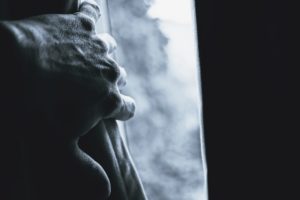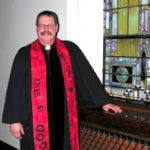
The Psalms give us eloquent language to describe life experiences ranging from the highest highs to the lowest lows. It is hard for me to imagine a life circumstance that the Psalms don’t give words to in one meaningful way or another. Written so long ago yet so relevant in our lives now, the Psalms seem to point to a timeless universality of the human experience – for better, for worse, for everything in between. That there is deep and abiding resonance between ancient experiences of being human and our own contemporary realities is pretty awesome, I think. It is at least validating.
I wish I only ever needed the happy Psalms, you know… the joyful and triumphant ones with all that music and dancing, the ones entirely given over to effusive thanksgiving and gushing praise. But I know that there are times when I need the sad and desperate Psalms too, times that I need those so much that even the mere existence of the others becomes completely incomprehensible to me. How in the world can anyone be so damn happy?
In those dark and desperate times, Psalm 88 has given me great comfort. I don’t know that it has given me hope as much as it has helped me acknowledge the realities in which I find myself from time to time. Psalm 88 does not make life better, but it gives me a way to understand that it’s not, yet.
Many years ago, I “lost” six months of my life, paralyzed by severe anxiety and depression, day after day having to exert every bit of energy I could muster to get out of my chair, get out of my room, get out of my house, to have any kind of connection with the world at all. Like the writer of Psalm 88, I felt “shut in” with no escape, experiencing “terrors,” surrounded on all sides by “floods.” There were times it felt like “darkness” was my only friend, a theme the writer of the Psalm claimed long before Simon and Garfunkel did.
I am truly grateful that a combination of medication and psychotherapy helped me make it through that challenging time, with a good mix of sheer persistence expressed as prayer that eventually made it possible for me to hope.
Being human is just hard. Being human in a world that seems increasingly dominated by conflict and polarization and pain and ongoing injustice is harder still. I suspect that many of us if not all of us will spend the rest of our lives trying to figure out what has happened to us these past few years and discerning ways to heal and find wholeness in the midst of it all.
Unitarian Universalist minister Forrest Church talked about religion as “our human response to the dual reality of being alive and having to die.” As existentially vulnerable beings, we need ways to make sense of things that don’t easily if ever make sense. So we cry out and await a response, from somewhere, somehow.
As we begin this Lenten season, we have yet another opportunity to find comfort in our faith, to call out for help, to feel inspired by whatever spirit moves us. And we have a new chance to think about how healing can follow periods of brokenness, how bits and pieces can come together to form an integral whole. New life by way of brokenness is the essential foundation of Christian faith. Isn’t it? Good Friday makes Easter possible. Breaking bread helps us recall Jesus’ broken body on the cross and makes coming to the Table matter. Darkness better prepares us to appreciate the light.

Rev. Dr. Marty Kuchma
Rev. Dr. Marty Kuchma is the Senior Pastor at Paul’s United Church of Christ, Westminster, Maryland and Professor of Practice at Lancaster Theological Seminary. He's also the author of the book, Church Be Nimble: Organizational Dynamics and Creativity in Mainline Congregations